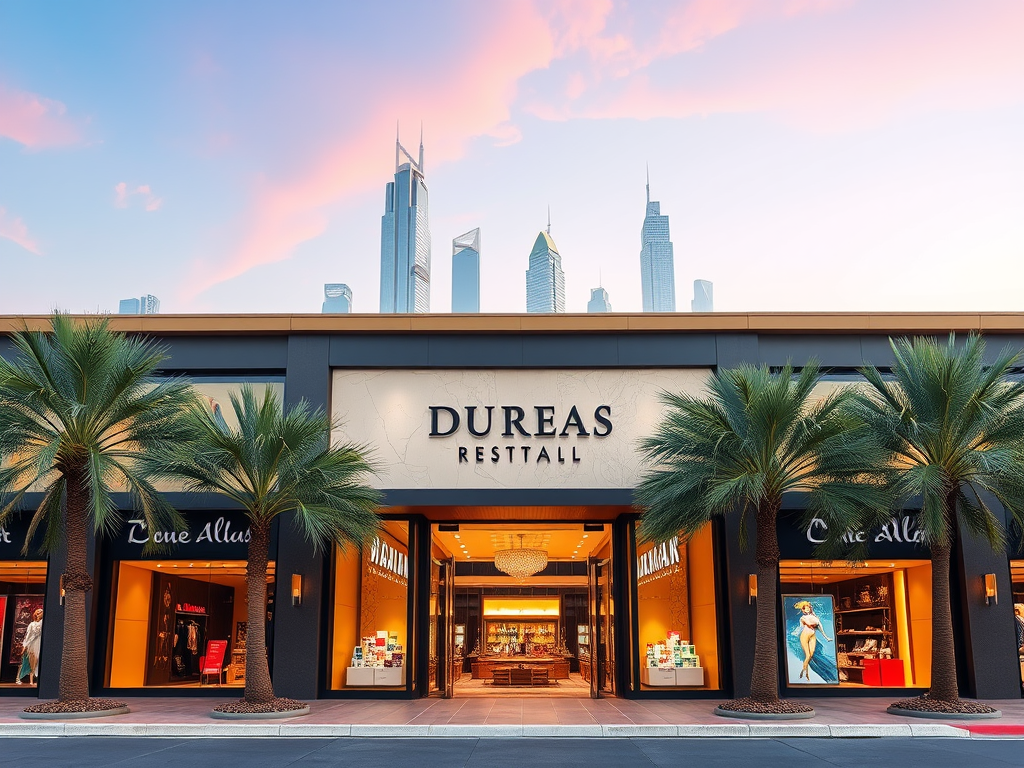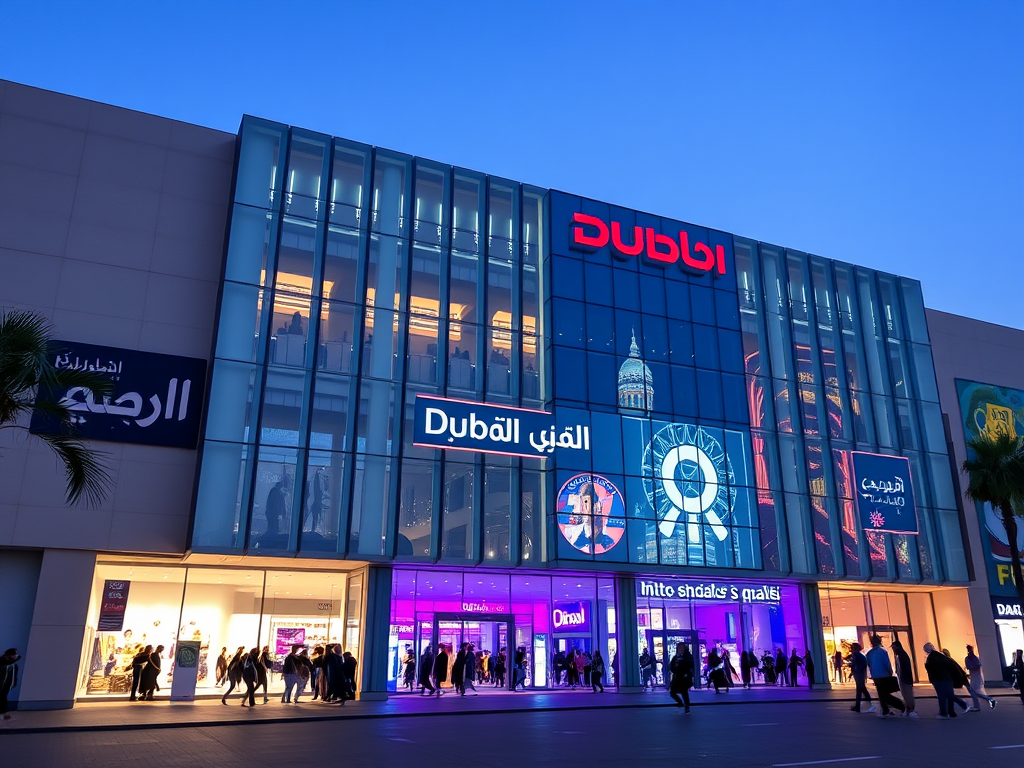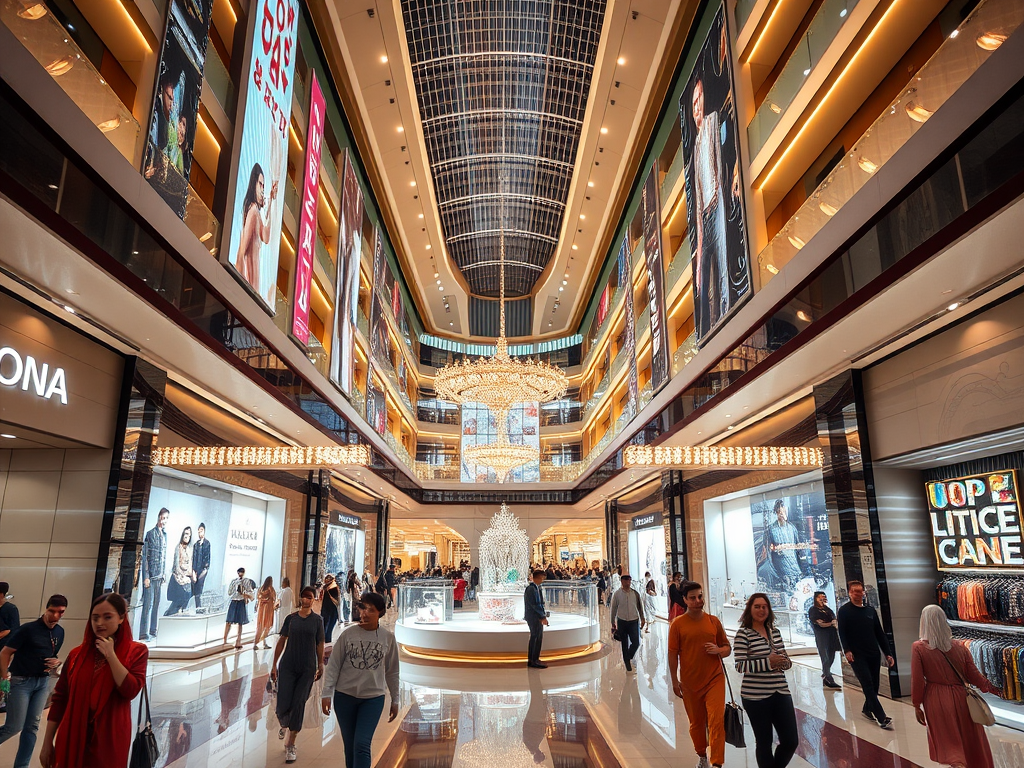Investing in Dubai’s shopping mall properties presents a lucrative opportunity for both local and international investors. The city boasts a dynamic retail landscape supported by a robust tourism sector and a rapidly growing population. To successfully navigate this investment landscape, it is essential to understand the local market dynamics, legal framework, and effective strategies for maximizing returns. This article will guide you through the steps you need to take to invest wisely in Dubai’s shopping mall properties, ensuring a comprehensive understanding of this vibrant investment sector.
Understanding the Dubai Real Estate Market

Before investing in shopping mall properties in Dubai, it’s crucial to grasp the dynamics of the real estate market. The city has consistently been a desirable location for investors due to its strategic position, tax-free benefits, and extensive infrastructure. Here are some factors to consider:
- Economic Stability: Dubai’s economy is resilient, bolstered by tourism, trade, and retail sectors that attract global brands.
- Population Growth: A continually growing population enhances consumer demand, making investment in retail spaces more appealing.
- Government Initiatives: Pro-business policies, such as long-term visas for investors, encourage foreign investment.
- Infrastructure Development: Ongoing improvements in connectivity and transportation boost accessibility to shopping malls.
- Cultural Events: Dubai hosts numerous festivals and events that attract tourists and locals, driving foot traffic in retail areas.
Types of Shopping Mall Investments

Investors have multiple options when it comes to shopping mall properties in Dubai. Understanding these various types can help you make informed decisions based on your investment goals.
- Fully Developed Malls: Purchase a property that is already operational and generating revenues, offering the quickest return on investment.
- Under-Construction Projects: Invest in malls still being built for a potentially higher return upon completion once the market is saturated.
- Retail Spaces for Lease: Invest in individual retail units within malls that you can lease to third-party retailers.
- Mixed-Use Developments: Properties combining retail, residential, and commercial spaces can diversify income streams and reduce risk.
- Joint Ventures: Partnering with other investors or firms allows you to share resources and expertise when investing in larger mall developments.
Navigating the Legal Framework
When investing in Dubai’s shopping malls, understanding the legal framework is paramount. Dubai’s real estate laws can differ significantly from other regions, so familiarity with local regulations is vital. Here are critical aspects to consider:
- Property Ownership: Foreign investors can own freehold properties in designated areas, which is crucial for shopping mall investments.
- Legal Documentation: Ensure proper documentation is in place, including sale agreements and compliance with local laws.
- Registration Process: Registering your property with the Dubai Land Department guarantees legal protection and clear property titles.
- Profit Repatriation: Understanding how profits from your investment can be repatriated back to your home country is essential for maximizing returns.
A robust investment strategy is vital for success when investing in shopping mall properties in Dubai. Your strategy should encompass market research, financial analysis, and operational management. Consider the following steps:
- Conduct Market Research: Analyze trends, consumer behaviors, and demographic shifts to identify the best locations and property types.
- Financial Planning: Calculate potential returns, consider financing options, and key expenses involved in maintaining mall properties.
- Property Management: Engage professional management services to ensure the mall operates efficiently and maximizes tenant satisfaction.
- Marketing Strategies: Implement marketing campaigns to attract new tenants and retain existing ones.
- Monitor and Adapt: Regularly review your investment performance and market conditions to make necessary adjustments for continued success.
Conclusion
Investing in Dubai’s shopping mall properties can be a highly rewarding venture if approached with the right knowledge and strategies. By understanding the real estate market, exploring various types of investments, navigating legal requirements, and developing a solid investment strategy, you can significantly increase your chances of success. Whether you’re looking for immediate returns from fully developed properties or long-term gains from under-construction projects, Dubai’s vibrant market offers something for everyone. As you embark on this investment journey, aligning your investment goals with the market’s opportunities and trends is the key to thriving in this exciting sector.
Frequently Asked Questions
1. What are the advantages of investing in Dubai shopping malls?
Dubai offers a strong economy, a growing population, tax-free benefits, and excellent infrastructure, which all contribute to a lucrative environment for retail property investment.
2. How can foreign investors purchase shopping mall properties in Dubai?
Foreign investors can buy freehold properties in designated areas, subject to local regulations that govern property ownership.
3. What types of retail spaces are available for investment?
Investment options include fully developed malls, under-construction projects, individual retail spaces for lease, mixed-use developments, and joint ventures.
4. How do I ensure compliance with Dubai’s legal framework when investing?
Work with local real estate experts, legal advisors, and ensure that all necessary documentation and registrations are in place according to Dubai’s real estate laws.
5. What strategies can help maximize my investment in shopping malls?
Conduct thorough market research, develop a comprehensive financial plan, engage professional property management services, and remain adaptable to market changes to enhance investment returns.
